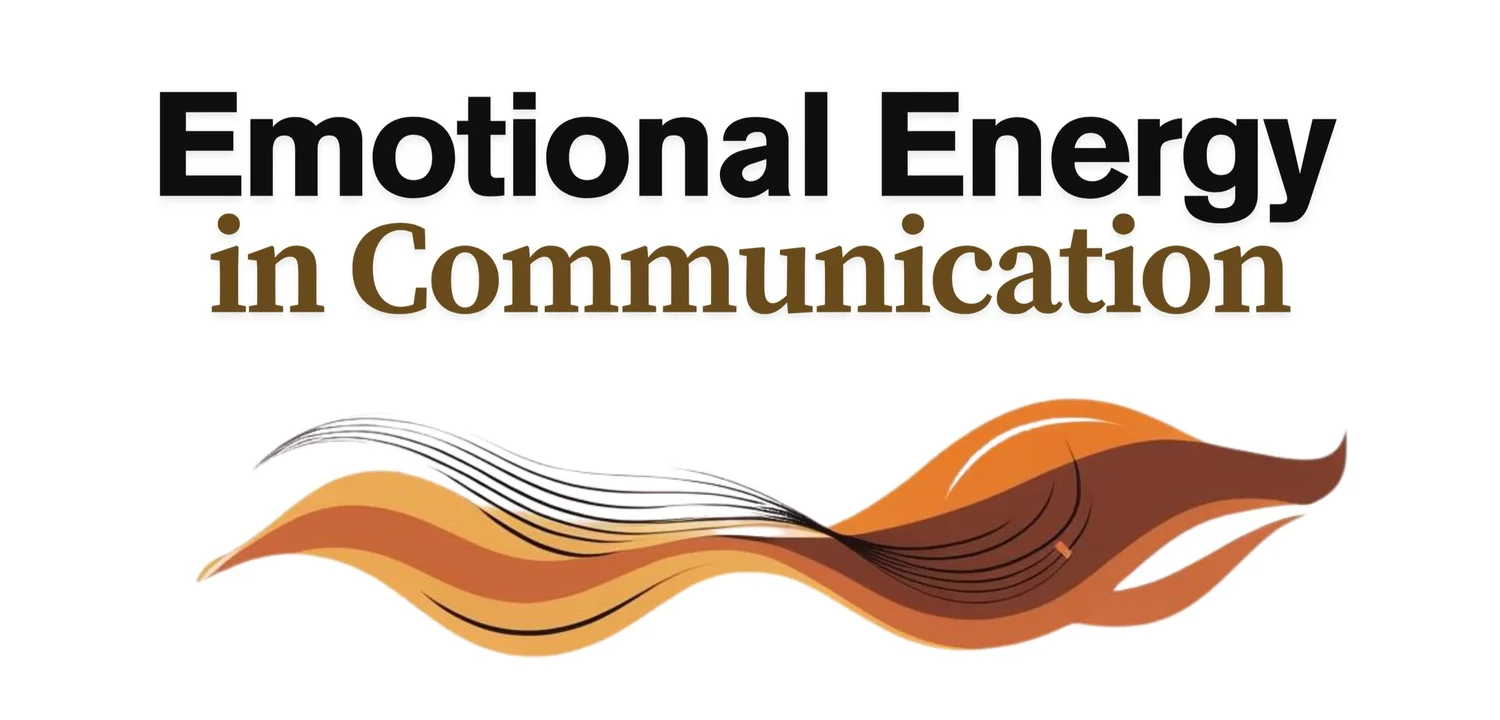Emotions Aren’t the Problem, Emotional Illiteracy Is!
And we don't even realize that it's one of the biggest things holding us back at home, at work, and in our relationships?
We live in a world where we can instantly name brands, apps, trends, and buzzwords, but most of us struggle to name five emotions we've felt today.
And that's not because we're broken or shallow. It's because we were never taught the language of emotions.
We've all had an education in math, grammar, and history. Many of us are digitally fluent. But emotional fluency? That's rarely part of the curriculum.
By the time we're five, we've usually acquired verbal language and along with it, a silent social script: "Calm down." "Cheer up." "Don't cry." "Be strong."
The message? Emotions are inconvenient. Best to hide, ignore, or push them down.
Emotions Are Not the Problem
They're not something to fix or overcome. Emotions are messengers. They're wise. They tell us something important. But no one ever taught us how to listen.
Reading "The Language of Emotions" by Karla McLaren put words to what I've always felt: every emotion, even anger, fear, shame, and grief, has purpose and wisdom. They aren't random or irrational. They're trying to guide us, protect us, and move us forward.
But because we're emotionally uneducated, we miss their messages. We become reactive instead of reflecting. We shut down, block, and isolate. We live on emotional autopilot.
Why I'm Launching the What If Series
Over the years, I've worked at the intersection of psychology, marketing, and coaching, and one pattern keeps showing up: we're emotionally disconnected.
Not by choice. By culture.
We've learned to perform, to please, to power through. But we haven't learned how to feel, how to name our emotions, or how to trust our emotional experience.
That's why I'm starting this new series called the What If Series. "What if" questions open the door to endless possibilities and imaginative scenarios. They prompt us to consider alternatives, explore potential outcomes, and challenge the status quo.
Each post will explore a different aspect of emotional literacy, inviting you to new ways of thinking and feeling. It's not about being more emotional. It's about being more honest. More connected. More human.
What If Emotions Are Actually Useful?
Let's reframe things a little…
🔸 What if sadness isn't weakness, but a call to slow down and grieve?
🔸 What if anger isn't dangerous, but a boundary-setting tool?
🔸 What if joy isn't the goal, but a clue toward what truly matters?
🔸 What if numbness isn't emptiness, but a sign we've stopped listening?
Emotional literacy helps us move from judgment to curiosity. From reactivity to response. From surface living to deep connection. And that changes everything.
How This Shows Up in Everyday Life
🏡 At Home
Instead of snapping, "You never listen to me," you say: "I'm feeling unseen, and it's hard." You speak from truth instead of blame, and that changes everything. You model healthy emotional expression for your kids. You build a home that's emotionally safe, not just clean and calm.
💼 At Work
You can tell when a colleague's passive aggression is actually a sign of burnout or fear. You notice when your own stress needs a boundary, not just another coffee. Emotional literacy helps you lead with empathy, communicate with clarity, and navigate tension with grace.
In marketing and business, emotional intelligence isn't just nice to have; it's the missing piece in most messaging. People connect through emotion. Always.
And emotionally intelligent leaders make better decisions, build stronger teams, and create psychologically safe workplaces.
🧑🤝🧑 In Social Settings
You stop people-pleasing and start self-honoring. You stop taking things personally. You start noticing what's underneath the surface in conversations. You become the friend who listens without trying to fix. The one who holds space. The one who's safe to be real with. And you don't lose yourself trying to please others, you stay grounded in your own emotional truth.
Why This Matters to Me
As an HSP (Highly Sensitive Person), I feel things deeply. I sense what others are feeling often before they can name it. My superpower is helping people bring emotional awareness to the surface. To put feelings into words. To bring compassion into the places we've learned to ignore.
That's what this series is here for: To help you grow your emotional vocabulary. To challenge old narratives. To reconnect to what's real, soft, strong, and true, like our own emotions are.
I believe emotional literacy is a radical act of self-love and a powerful key to healthier relationships, more impactful and meaningful leadership, and more grounded living.
This is the first piece in the What If Series. I'll continue to explore emotions one by one, gently, playfully, and honestly.
Because the more fluent we become in the language of emotions, the more present, peaceful, and powerful we can be. When we learn to name our feelings, we reclaim our power, because emotional literacy isn't just personal - it's transformational.
I hope you come along and learn something new about your own emotions.
